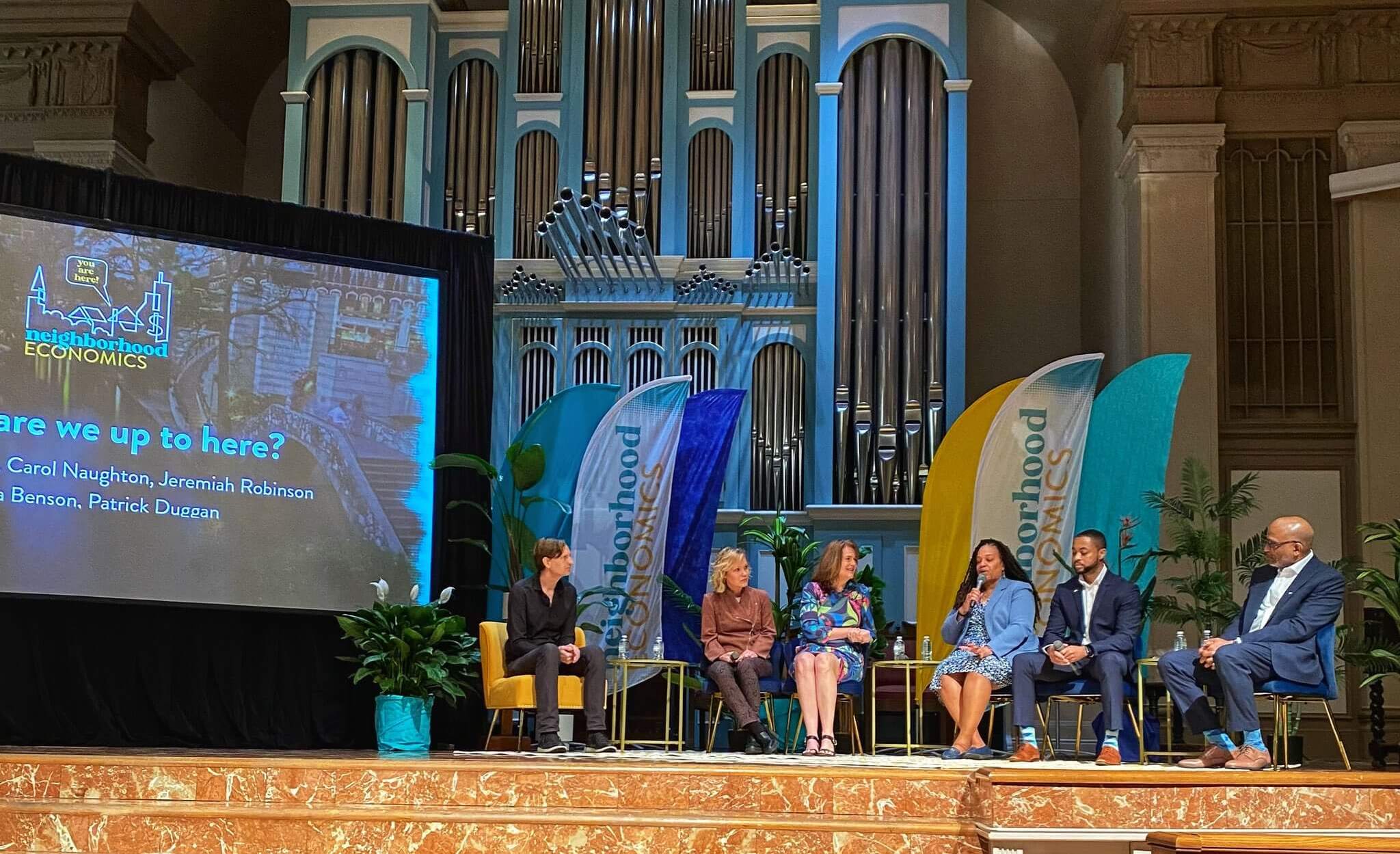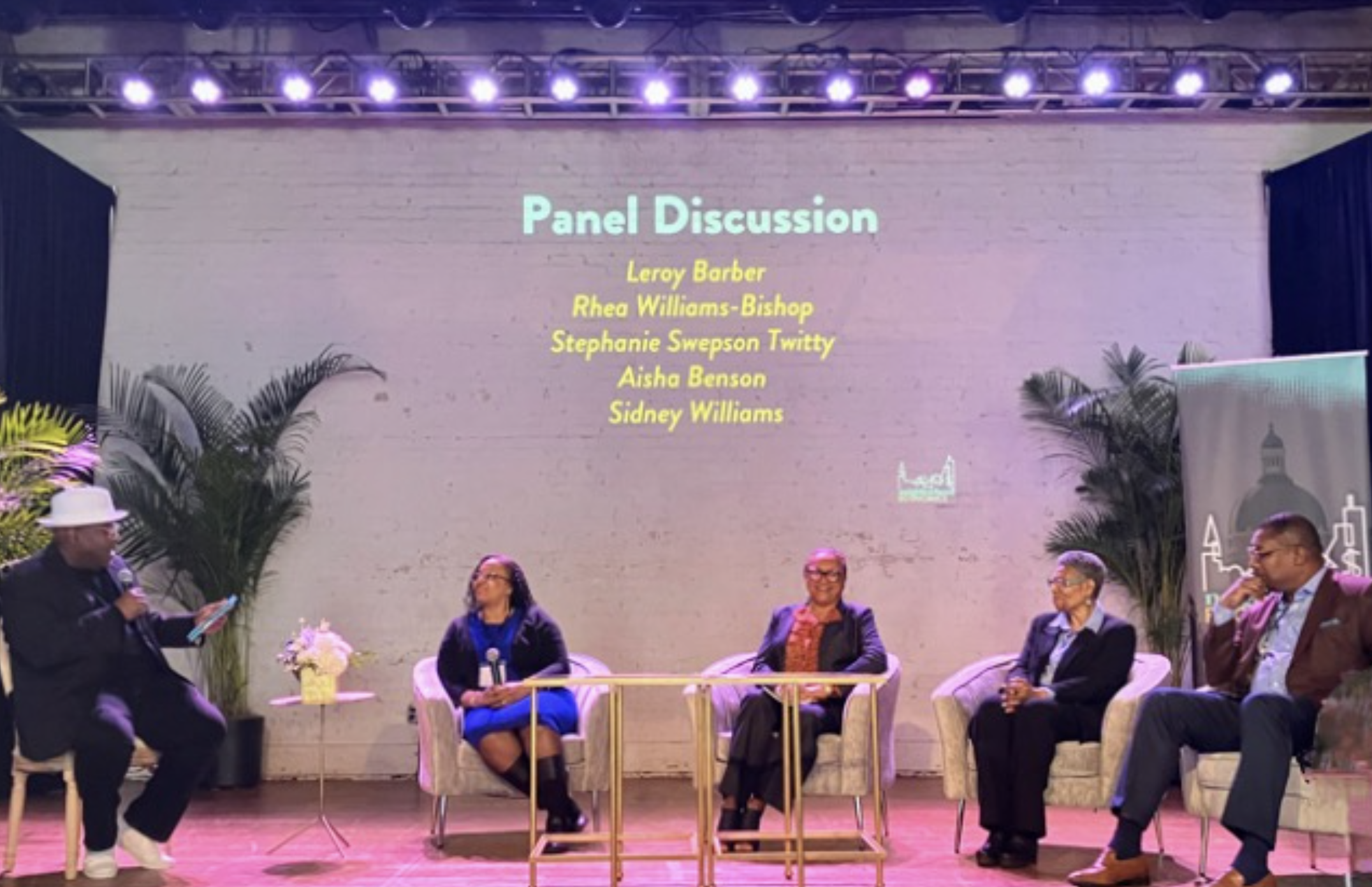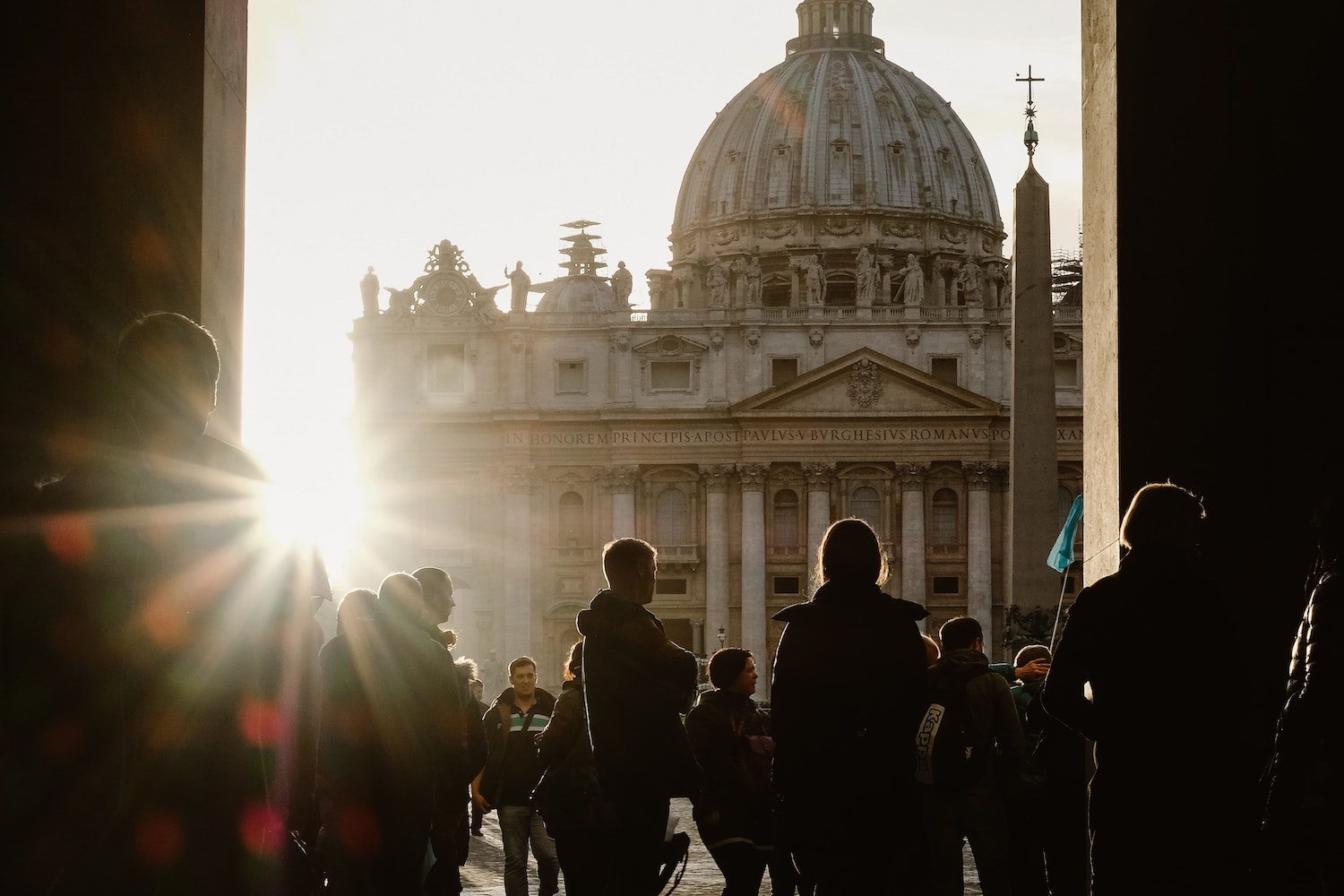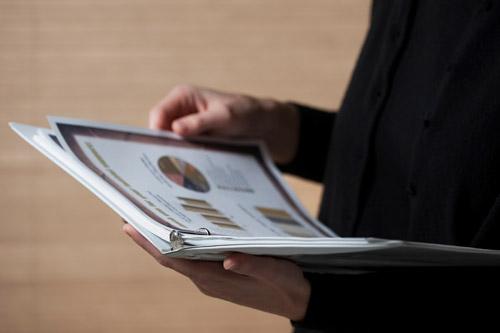Are the world’s Christian investors the stakeholders uniquely positioned to bridge the $2.5 trillion funding gap for achieving the Sustainable Development Goals by 2030?
The Pope thinks so.
His Holiness also thinks that faith-based investors can mobilize the necessary commercial and development finance institutional capital, using blended finance, to finance the mitigation pathways as outlined in the IPCC Special Report to limit warming to 1.5°C above pre-industrial levels.
The IPCC report demonstrates why the SDGs, from poverty to urban development, to oceans and climate, are as inextricable as the socio-political and economic systems they rely on in an increasingly interdependent global economy. Short-term priorities in finance and politics are no match for the overwhelming facts of the ecological crisis. Together as a civilization, we are in the quintessential collective action problem.
By allowing investors of various risk-return profiles to share an investment portfolio, blended finance can foster collaboration for the Global Goals.
Christian impact investors can help lead the way by taking on greater risk positions in blended deals. Blended finance enables the faith-based investment manager to take a higher risk approach and be willing to invest in enterprises which are at an earlier stage of development, or which are more innovative and use technology to benefit low-income populations.
Seeding more digital innovations, for example, will be critical for low-income populations to achieve the SDG targets, and new technologies have the potential to help entire countries and regions leapfrog decades of lapsed economic development.
To deliver on this promise, the world needs an impact investment fund where the investment thesis is simply “in the service of all life” and whose portfolio is only companies that adhere to the highest principles of ethics and biomimicry (the Creator’s principles of generating and sustaining life).
Recalibration
What if every Christian-based impact investor focused on just one Biblical truth; a truth about God that is undeniable across Christian theologies and denominations? What moral position is more universally shared than knowing the Creator God wants humans to have reverence for all of life on this magnificent planet? Is there any ethical principle more clearly understood across cultures, geographies, and generations than the inherent goodness and impulse to preserve and sustain life? Is there any investor commitment more urgent in a world on fire, as Harvard economist Rebecca Henderson explains, than this one simple truth?
When Pope Francis wrote his 2015 encyclical letter on climate change, Laudato si’, he drew the world’s attention to the neglected connection between our mindless material consumption in markets run by computers and the desecration of God’s sacred creation, human and non-human.
He writes, “The violence present in our hearts, wounded by sin, is also reflected in the symptoms of sickness evident in the soil, in the water, in the air, and in all forms of life. Therefore the earth herself, burdened and laid waste, is among the most abandoned and maltreated of our poor; she “groans in travail” (Rom 8:22). We have forgotten that we ourselves are dust of the earth (cf. Gen 2:7); our very bodies are made up of her elements, we breathe her air and we receive life and refreshment from her waters”.
As Pope Francis, and the likes of Albert Schweitzer would remind us, we are all guilty of acts of inhumanity just by merely being alive, regardless of any intentionality, and regardless of how rigorous our impact indicators are or how focused on equity our portfolios are, or how diverse the company is, or how committed we are to making ethical purchases.
Why? Because we are all connected to the good and the evil in the systems and institutions we have created, and we are the ones that need to recalibrate them according to the principles of life, or biomimicry.
Internalizing externalities
What matters now for faith-based investors, as our climate heats up to 1.5°C above pre-industrial levels, is our answer to the question Schweitzer asked himself in the village of Lambarene in Gabon, “How is what I am doing consistent with my ethical affirmation of the world and of life?”– or with what came to be his beautiful phrase “reverence for life”.
In the current investment environment, investment strategies that focus on ESG and impact are considered by some as morally superior because they account for social and environmental externalities and, in some cases, even seek to place our commonwealth before shareholder wealth. Despite this upward trend, however, empirical studies (Kim and Yoon, 2020) have shown that even in firms with the highest ESG scores, their performance does not translate into improved environmental outcomes.
The simplest explanation for this is that the models we are using to benchmark ESG and impact investing measures are based on data gathering methods that are more suited for compliance than for assessing the contribution of the firm to human development and ecological balance. A recent SSIR article by Sasha Dichter, et al., explains the limitations of thinking of impact as a static measurement for reporting purposes.
On a practical level, the methods for investing, evaluating, and reporting on ESG investing (Gibson, et al, 2020) do not reflect actual behavior of firms in the U.S. We need something more aspirational, that reflects a moral driver bigger and more universal than the sum of the [ESG] parts.
A Biblical explanation for greenwashing may be that we fail to love the Lord our God first and foremost, as commanded, and we make idols out of money and even out of “impact” when we are more interested in wanting to show off how altruistic we are as investors than actually walking the talk (Dikolli,, et al, 2021).
Professor Amartya Sen, upon receiving the 1998 Nobel Prize in economics, exposed the limitations of utility-driven measures for both rational choice and human development. Societies must pay attention, Sen argued in his Nobel lecture, to social goals as well as economic goals, always leaning toward their most vulnerable citizens, and overcoming deep-rooted biases to invest in human agency, especially of women.
To quote Schweitzer, who won the Nobel Peace Prize in 1952 for his work in public health and anti-nuclear proliferation with Einstein, “Ethics is only present when all life is sacred”.
In the current global system of financial capitalism, short-term, scarcity mindsets fueled by competition make the rich richer in money but poorer in human welfare. Life expectancy in the U.S. continues to decline and world leaders struggle to fund the SDGs to slow climate change.
What plagues the finance and investing world is that firms are the ones to decide, using utility measures like market price and shareholder returns, what they are required to care about, by what impacts the bottom line, also known as materiality. Too often firms ignore the social and other capitals that are built into a particular place or are required to generate value but are taken for granted.
The results of this is what we now see across the globe, where most of the natural world and the needs of the poorest have become externalities to firm growth. Thus, it is essential to support, as investors and consumers, the companies that have internalized social and environmental factors and are actively measuring both their negative and positive impact on people and planet at every link in the value chain, and honestly reporting on it. Benefit Corporations are a very positive signal for impact investors in this regard, but there is much more to be done.
Christian investors, unlike other impact investors, have an active ethic of love that drives decision-making, rooted in the life, death, and resurrection story of Jesus Christ. For this reason, helping to rescue, revitalize and restore life to the planet, focusing especially on the weakest and the voiceless, means fulfilling an ethical responsibility to steward the capital we have been given, knowing its primary purpose is to serve life, not our own desires.
Schweitzer encapsulates this idea when he writes, “Our inner happiness depends not on what we experience but on the degree of our gratitude to God, whatever the experience.”
Like Jesus experienced during his life, this principle is difficult, inconvenient, and downright offensive to a mindset that believes all success is merit-based, and all wealth is hard earned and therefore, the property of the earner. And yet, as Christians we believe, “The spirit generated by truth is stronger than the force of circumstances” (Schweitzer).
Risk profiles
Blended finance has proven to be the simplest way forward to serve this truth for faith-based investors. With a “first loss” tranche and more “senior” tranches, all parties in the deal share the same investment portfolio but participate according to their respective risk/return/impact criteria. When there is a loss, it is the first loss tranche that bears the risk, thereby protecting the more senior tranches.
Faith-based institutions are the best positioned institutions to assume the risk of first loss, as charities and philanthropic organizations. It is now understood as more effective and efficient philanthropy, as well as more coherent impact investing, to invest in the first loss tranche of an impact fund that in turn attracts private sector and development finance institution funding than if they invested in the same cause by themselves. When the funds are managed well, this initial investment is preserved, and most likely will generate a return, meaning the institution can invest the same capital, again and again. Of course, some degree of liquidity needs to be offered to investors coming in the senior tranches of the fund, while some proportionality between tranche sizes must be maintained in order to keep the risk/return profile of each tranche.
Blended finance as a strategy is simply about harnessing the power of capital markets – public, private and charitable – for the global good.
Two recent reports on faith-based investing, by Commonwealth Capital Management (CCM) and Calvert Impact Capital, highlight the need for faith institutions to take more risks and expand their sectoral horizons into new companies and industries.
The results could be inspiring. Small and medium enterprises that are built with new technologies and designed in alignment with the principles of nature, for example, have higher potential to succeed in transforming poverty by connecting income-poor communities to life-saving services, reducing carbon emissions, connecting health and wellbeing, and opening up educational opportunities. Blockchain’s characteristics of security and transparency are particularly interesting for sectors that have been relegated to the informal economy due to lack of infrastructure. Investing in nature-based blockchain companies could help more people have reliable incomes without requiring formality.
Biomimicry, if applied correctly, embodies the principles for business that embed externalities and, in so doing, addresses the climate crisis by reducing or capturing carbon emissions, reducing waste, optimizing for function instead of form, and regenerating value throughout the circular ecological value chain. Examples of three biomimicry companies show the potential for addressing several SDGs by investing in only one company. Imagine an entire portfolio of these companies, either operating in low-income countries or serving low-income countries, with a blended finance capital structure that mobilizes billions from private investors and development finance institutions, alongside faith-based institutions.
The world needs an impact investment fund, inspired by the commitment to creation care and common grace of Pope Francis, the reverence of life principles of Schweitzer, and the commitment to human welfare, agency, and voice of Sen, where the investment thesis is simply “in the service of all life” and whose portfolio is only companies that adhere to the highest principles of ethics and biomimicry (the Creator’s principles of generating and sustaining life).
This fund’s thesis would maintain, like Pope Francis, Sen, Henderson, and Schweitzer, that there is no human progress without ethical progress, and ethical progress that discounts the natural world is devoid of love. To be in the service of life is a very counterintuitive stance for a society that prides itself on labeling, compartmentalizing, monetizing, and rationalizing. To be explicit about this is to be offensive to a world that has devoted its cause to separating the mind and the heart, cognition from feelings, material life from our ecological and spiritual life. And yet, as followers of Christ, this is right where God wants us.
A faith-driven, biomimicry-based impact investment fund would respond to rational arguments requiring financial acumen, reason, and knowledge. Equally, it would respond to emotional arguments demanding faithful reflection, empathy, consciousness, anti-empirical ethics. Or as Schweitzer phrased it, “everything that can be described as love, devotion, compassion in suffering, and the sharing of joy and common endeavor”.
As faith-based investors, citizens and consumers, we are stewards of capital whose purpose is to plant a seed that becomes a tree under whose shade we will never sit. Who are we to think we can reverse the damage done to the natural world from generations of carbon emissions? Who are we to think the God of Creation in whom all things are possible has not equipped us for precisely this task?
Sara Minard is an economist, founder and CEO of international consulting firm Manarine, and Associate Director of the Mockler Center for Faith and Ethics in the Public Square at Gordon Conwell Theological Seminary. She teaches impact investing and social finance at Babson College.
This piece was supported by Roots of Impact and the Porticus Foundation.











